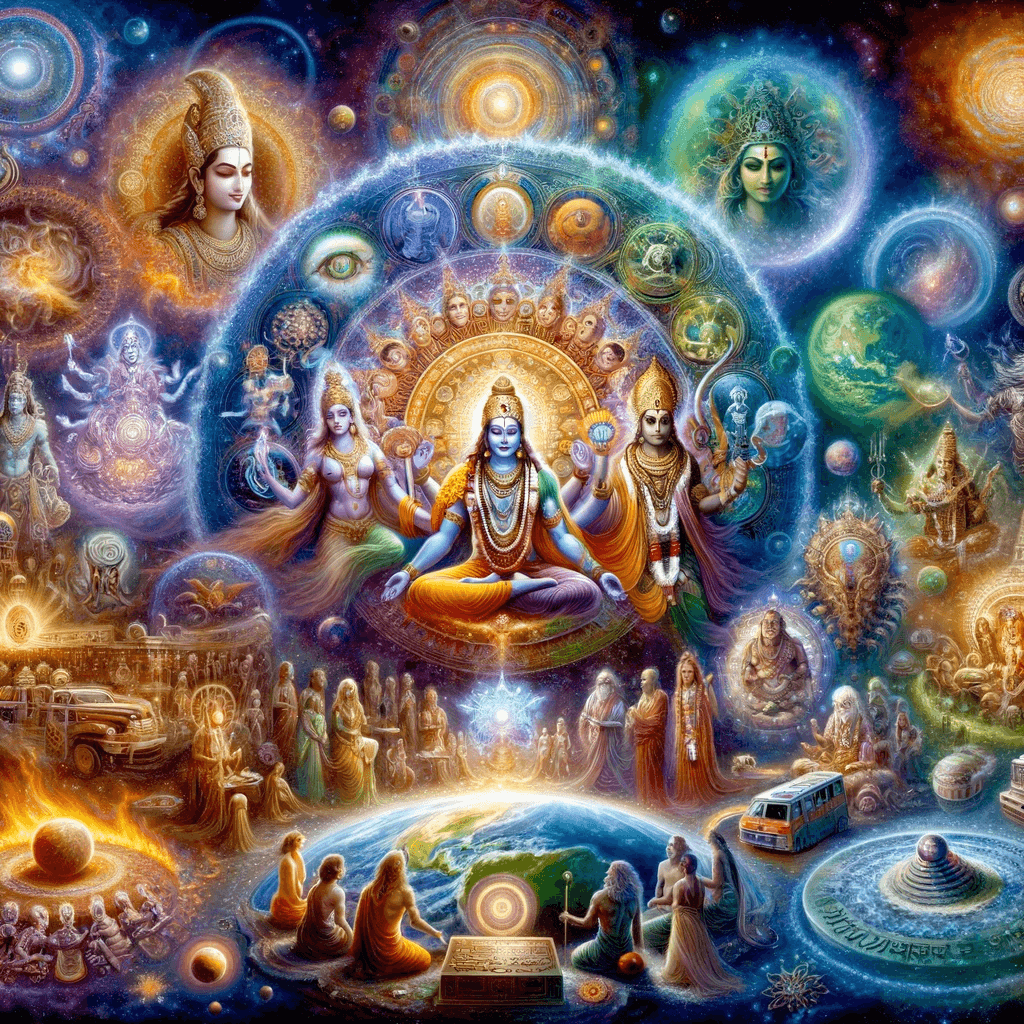Sanatan Dharma and the Concept of Gods
Sanatan Dharma, often misunderstood as merely Hinduism, is a rich and complex spiritual tradition. It is not confined to a single belief system but encompasses a wide array of practices, philosophies, and ways of life. This diversity is particularly evident in its approach to divinity.
Myths/Truths and Other Details

The Myth of Multiple Gods
A common misconception about Sanatan Dharma is that it worships multiple gods. This view often leads to the portrayal of the tradition as polytheistic.
The Truth: Henotheism and Brahman
In reality, Sanatan Dharma is fundamentally henotheistic. It recognizes a single, supreme reality known as Brahman, which is formless and omnipresent. The various deities worshipped within Sanatan Dharma, such as Shiva, Vishnu, Ganesh, and Durga, are not separate gods but different aspects or manifestations of this one divine essence.
Deities as Manifestations
Each deity in Sanatan Dharma symbolizes a specific aspect of the divine. For instance, Shiva represents destruction and regeneration, Vishnu embodies preservation, and Durga signifies strength and protection. This concept allows followers to connect with the divine in a form that resonates with their personal spirituality.
Personal Choice in Worship
Sanatan Dharma offers the freedom to choose how one connects with the divine. This flexibility accommodates diverse personal preferences and cultural backgrounds, allowing individuals to worship the form of divinity that aligns with their own spiritual journey.
The Role of Vedas and Scriptures
The Vedas, the ancient scriptures of Sanatan Dharma, emphasize the oneness of the divine. They describe the various deities as different expressions of the same ultimate reality.
Modern Understanding
Today, scholars and practitioners alike emphasize the monotheistic core of Sanatan Dharma, clarifying that the multiplicity of gods is a way of understanding the one, all-encompassing divine force.
...




